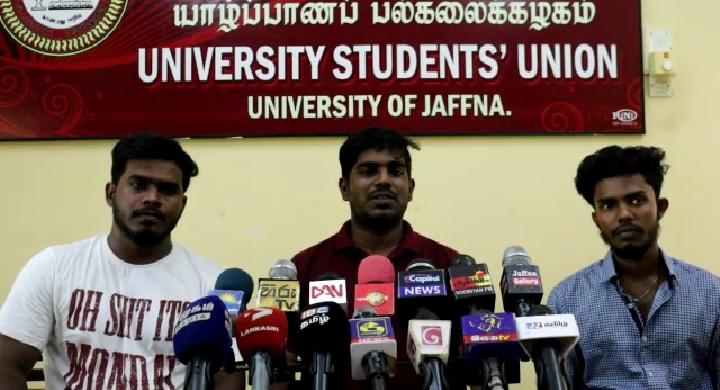
The Office of the High Commissioner of Human Rights (OHCHR) has raised “serious concerns” over the Anti-Terrorism Bill and the Online Safety Bill, two pieces of legislation that are currently being considered in Sri Lanka’s parliament.
The UN Human Rights Office warned that both bills “give the authorities a range of expansive powers and can impose restrictions on human rights, not in line with international human rights law”.
Anti-Terrorism Bill
In particular, the “scope and discriminatory effects” of the proposed Anti-Terrorism Bill were raised, with the UN body stating that it “includes an overly broad definition of terrorism and grants wide powers to the police - and to the military - to stop, question and search, and to arrest and detain people, with inadequate judicial oversight”.
The bill, which was intended to replace long-standing draconian Prevention of Terrorism Act (PTA), had already faced criticism from Tamils across the North-East and a range of voices, including former Sri Lankan Human Rights Commissioner Ambika Satkunanthan.
The PTA has been used for decades against Tamils and Muslims to arbitrarily arrest and detain people, violate fair trial rights, and put detainees at risk of torture.

"The Tamil people's voices have been systematically oppressed by the PTA, and student movements that have been democratically engaging in protests and dissent have been greatly affected by the existing PTA,” said Jaffna University students at a press conference earlier this year. “Students have been arrested and intimidated, and the proposed Anti-Terrorism Act is likely to worsen the situation."
The UN human rights body also said there was concern over “the imposition of curfews, restriction orders and the designation of prohibited places, all of which raise concerns about the scope of powers granted to the executive without sufficient checks and balances”.
Online Safety Bill
It added that the proposed Online Safety Bill will “severely regulate and restrict online communication, including by the general public and will give authorities unfettered discretion to label and restrict expressions they disagree with as “false statements”.”
The bill “could potentially criminalize nearly all forms of legitimate expression, creating an environment that has a chilling effect on freedom of expression,” said the UN Human Rights Office.
Sri Lankan police in the past have targeted Tamil youth for “LTTE social media posts” as well Muslims for criticism of the Sri Lankan military.
Earlier this month, the International Federation of Journalists (IFJ) and its Sri Lankan affiliates have urged the government to reconsider its Online Safety Bill due to growing concerns over its impact on freedom of expression.
Meanwhile, Ian Seiderman, the Legal and Policy Director at ICJ, stated, “While the spread of online hate-speech and disinformation need to be tackled, this bill is deeply flawed in its design and would be open to abuse by the Sri Lankan government, which has persistently failed to uphold freedom of expression.”
See the full text of the UN High Commissioner for Human Rights statement here.
